Tensions over “monkey” email erupt on House floor
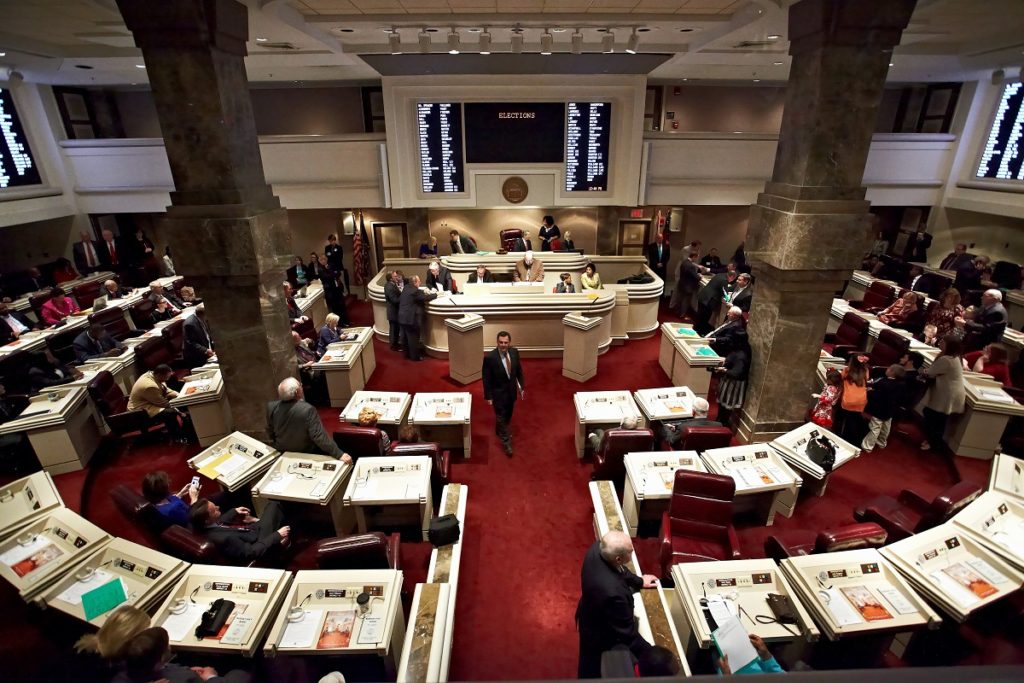
Simmering tensions over a monkey email sent by an Alabama legislator erupted into shouting match on the House floor. A black lawmaker on Thursday night said a Republican legislator had offered only excuses, and not an apology, for the email The email forwarded Wednesday by Republican Rep. Lynn Greer, of Rogersville, described an experiment showing how punished monkeys will eventually stop reaching for a dangling banana as they accept the status quo. It was sent as African-American lawmakers used delaying tactics to fight legislative districts. Rep. John Rogers, a black lawmaker from Birmingham shouted at Greer, “I’m not a monkey. … You are a damn monkey.” Greer said the email was about the need to replace incumbents. The tensions threatened to derail the last days of the legislative session. ___ A white Alabama legislator has stirred outrage after sending an email that black lawmakers condemned as racist. The email forwarded Wednesday by Republican Rep. Lynn Greer, of Rogersville, described an experiment showing how punished monkeys will eventually stop reaching for a dangling banana as they accept the status quo. It was sent as African-American lawmakers used delaying tactics to fight legislative districts they said minimized black voters’ influence. House Black Caucus Chairman John Knight called the email, “the most racial insult I’ve ever seen.” The tensions in the statehouse threatened to derail the last days of the legislative session. Greer says he apologized to the black caucus, and says he didn’t “mean anything bad.” He says the email meant all incumbents need to eventually be replaced. Republished with permission of the Associated Press.
Legislators close to renewing Alabama’s historic renovation tax credit

The renewal of Alabama’s historic renovation tax credit, which has helped revive downtown Birmingham and other areas around the state, is making its way through the Legislature. The Senate passed the bill last week 31-0, and the bill now returns to the House of Representatives for concurrence. A renewal would mean that a number of properties throughout the state could get new life, said Sen. Jabo Waggoner, R-Vestavia Hills, a sponsor of the measure. The program will run through 2022 with $20 million available each year. The legislation passed the Senate with bipartisan support, Waggoner said. “It was accepted all across the board from rural Alabama to urban Alabama,” he said. “[Legislators] have seen the effect it has had on Alabama primarily in the urban areas,” but improvement will soon be seen in rural areas. The economic development impact on the state has been immense, according to supporters of the bill. “The renewal of Alabama’s historic tax credit program will stimulate significant economic growth for downtown Birmingham, as well as other areas of the state, and will bring economic benefit to all of Alabama,” said Brian Hilson, president and CEO of the Birmingham Business Alliance (BBA). “The redevelopment of historic buildings will also be an essential component of our plan to develop Birmingham’s Innovation District in the downtown area.” Hilson said the previous tax credit program helped spur more than $200 million in redevelopment in downtown Birmingham and has brought more companies and attention to surrounding vacant properties. The historic credit expired in 2016, but not before benefiting nearly two dozen transformative projects in Birmingham, including the Lyric Theatre, Federal Reserve, Pizitz and the Thomas Jefferson Tower, and more than 50 statewide. “Some of those buildings would be deteriorating if we did not have those tax credits in the last few years,” Waggoner said. “Pizitz wouldn’t be done. It would be just an old building that would be an eyesore.” Hilson said tax credits have been crucial for downtown Birmingham, which represents Alabama’s largest central business district and concentration of employment. “It is an economic engine for our state, and while tens of thousands of employees work downtown, there is capacity for many more,” he said. “Much of that capacity is in the form of historic buildings that are both plentiful and restorable and can be repurposed for a wide range of uses, including technology, administrative and light industrial, as well as residential and commercial.” The revitalization has added benefits in addition to beautifying buildings, Waggoner said. “You’re talking about employees, people with jobs working at Pizitz or the Redmont …” he said. “The Pizitz has a food court and residential areas … shops … It’s great.” The three-year Alabama Historic Rehabilitation Tax Credit Program expired in 2016, and the state Legislature failed to renew the program before the end of last year’s session. Waggoner was determined not to let that happen this year. “The renewal will help the whole state revitalize older areas,” he said. “It will not only affect the economy in urban Alabama but it will also affect the economy and look in rural Alabama, and I think you will see some more improvements (across the state) real soon.” Republished with permission of Alabama NewsCenter.
Leigh Ann Hurst is an Alabama Maker fashioning treasures from metal and stone

Folks were a bit confused the first time Leigh Ann Hurst exhibited her handcrafted jewelry at an arts fair. “I got interested in making jewelry during the summer of 2009, after my mother, Glenda Sartain, showed me what she had been doing to entertain my niece one weekend,” the Huntsville native remembers. “They had gone to a local gem store and bought some stones to create pieces of jewelry. After playing around with the gemstones and some metal wire, I fell in love with jewelry design.” That November, Hurst and Sartain took their pieces to the Made South Holiday Market in Franklin, Tennessee, where their jewelry — and the way it was exhibited — drew some curious stares. “We loaded an antique sideboard, antique lamps, an oriental rug, an oil painting and a shelving unit into my mother’s Ford Edge SUV, and drove it all to Franklin,” Hurst says. “We displayed the jewelry in the drawers of the sideboard and on the shelves. But it was hard to know what we were selling — antiques or jewelry. Anyway, the pieces were well received and the following year we did the same show, but without the antiques.” It didn’t take long for more folks to start admiring Hurst’s jewelry — and her artistic skills. Although she’s been crafting items out of silver, copper, brass and gold for only a few years, her necklaces, bracelets and earrings are sold at shops in Alabama, Mississippi, Tennessee and North Carolina, as well as on her website and at art shows across the country. “I love making my art, but sometimes I hate to see it go,” she says. “So it’s great to know that people like my pieces enough to buy them.” A graduate of Auburn University, Hurst worked as a design assistant for an interior design firm for four years. “But I never really felt comfortable in that field, so when my first child was born in 1991 I chose to stay home,” she says. “And after the Franklin show, I was ready to learn as much as I could about working with metals.” Hurst attended workshops with Huntsville metal artist Connie Ulrich and North Carolina metalsmith James Carter, and took classes at the Arrowmont School of Arts and Crafts in Gatlinburg. “I’m heading back to Arrowmont this summer,” she says. “The learning never stops.” Lately, Hurst’s favorite semi precious ingredient is labradorite, a gleaming quartz similar to moonstone. “Depending on the light, it can be a vibrant blue, or gold and green,” she says. “It’s perfect for earrings, and these days I’m focusing on earrings and bracelets.” She still makes an elongated cross necklace, one of her most popular pieces. Although some of her jewelry may look elegantly simple, it all takes patience and skill to make. “Even a piece like the cross takes longer than you’d think,” she explains. “I start with a piece of wire or metal. I try to use as many scrap pieces as possible so nothing goes to waste. Then I cut and solder the metal, clean it, get it to the right size and hammer it into shape. I usually work on several items at one time.” Since that first Franklin show, Hurst has exhibited her jewelry at craft fairs from Georgia to Wyoming. And her pieces still draw a lot of attention — even without the antiques. The Product: Sterling silver, copper, brass, gold-filled and gemstone necklaces, bracelets and earrings. Take Home: An elongated cross necklace ($65). Leigh Ann Hurst Jewelry www.leighannhurst.com. Republished with permission of Alabama newsCenter
Scorecard: Alabama recruited more than 14,700 jobs in 2016

Companies announced plans for more than 14,700 new jobs and nearly $4.2 billion in capital investment in Alabama during 2016, according to an analysis prepared by the Alabama Department of Commerce that chronicles wide-ranging economic development activity across the state last year. The 2016 New & Expanding Industry Report, released today by Gov. Kay Ivey and the Commerce Department, provides a detailed look at 405 projects recorded in the state during another solid year of business recruitment and support. Since 2012, economic development activity in Alabama has attracted $24.5 billion in investment and nearly 90,000 jobs, according to Commerce Department figures. Exact totals for 2016 were $4.199 billion in capital investment and 14,707 new and future jobs. “The investments made by these companies mean jobs for the citizens of our state, and I’m committed to creating an environment where opportunity flourishes across Alabama,” she added. Diverse activity The 2016 report reflects another year of strong growth for two industries that are central pillars in the Accelerate Alabama 2.0 economic development blueprint — automotive and aerospace. Both sectors contributed to a record year for Alabama exports. Other segments of Alabama’s economy, ranging from forest products to alternative energy and corporate headquarters, also saw healthy project activity last year, according to the new report. Foreign companies accounted for nearly $1.6 billion in 2016’s new capital investment, or about 40 percent of the total, a figure in keeping with that of recent years. Austria was the top source of foreign direct investment last year, with projects valued at $666 million. “We’ve been very strategic in our approach to economic development in Alabama because we want to develop productive partnerships with companies from around the globe that will put down roots in our state and expand over time,” said Greg Canfield, secretary of the Alabama Department of Commerce. “We’re focused on creating high-caliber jobs and opportunities for hard-working people of our state,” he added. The momentum has carried over into 2017. Already this year, companies such as Aerojet Rocketdyne, Leonardo and Wal-Mart Stores Inc. have announced major economic development projects in Alabama. Together, these projects alone would create 2,000 jobs. 2016 rankings Here are snapshots from the 2016 scorecard for Alabama’s economic development team. Top projects, ranked by investment: Kronospan, an Austria-based maker of laminate flooring, announced a $362 million expansion of its Calhoun County facility. BC Foley LLC, a company created by the Poarch Band of Creek Indians, is investing $361 million to open the Owa amusement and entertainment complex in Baldwin County. Lenzing, another Austrian company, is investing $293 million to expand production of eco-fibers at its plant in Mobile. Top projects, ranked by job creation: BC Foley’s Owa complex will create 620 jobs. Lear Operations, an auto supplier, will create 535 jobs with an expansion in Tuscaloosa County. Aerospace giant Boeing Co. will add 470 jobs to its Alabama workforce as it expands activities including engineering and the production of missile components in Huntsville. Top counties, ranked by investment: Jefferson — $506 million Calhoun — $398 million Baldwin — $394 million Top counties, ranked by jobs: Montgomery – 1,704 jobs Madison – 1,548 Jefferson – 1,469 This story originally appeared on the Alabama Department of Commerce’s Made in Alabama website. Republished with permission of Alabama NewsCenter.
Luther Strange makes efforts to promote culture of life
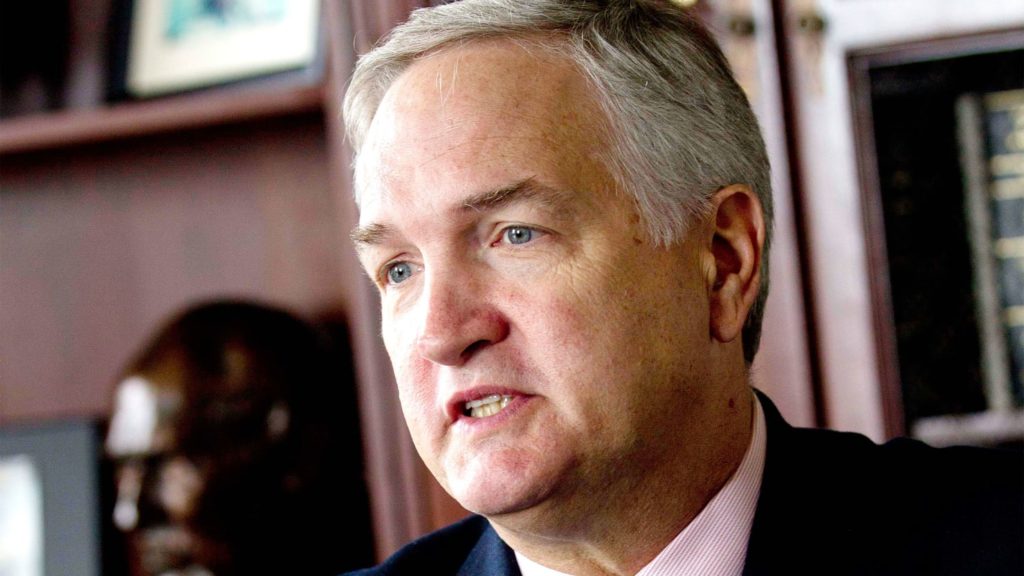
Continuing his commitment to stand for life, pro-life Sen. Luther Strange announced Thursday two of his latest efforts to make government more accountable to the people of Alabama, and defend the dignity of the unborn. First he announced he joined the Congressional Coalition on Adoption (CCA) on Wednesday. Dedicated to raising awareness about the millions of children around the world in need of permanent, safe, and loving homes and to eliminating the barriers that hinder these children from realizing their basic right to a family, the CCA is the largest bicameral, bipartisan caucus in Congress with over 150 members. As a member of the coalition, Strange intends to continue his advocacy for the children of the Yellowhammer State, particularly the 1,156 in foster care awaiting adoption. Strange also announced he signed on as a co-sponsor of Mississippi-Republican Sen. Roger Wicker’s bill, S. 184, the No Taxpayer Funding for Abortion and Abortion Insurance Full Disclosure Act of 2017. The legislation would establish a permanent, government-wide prohibition of taxpayer funding for abortion. The legislation also has a provision to make certain all plans offered through Obamacare health care exchanges must disclose whether they include coverage of elective abortion procedures, as well as the abortion surcharge embedded into abortion-covering plans. “Our society cannot be truly prosperous until it respects the rights of the most vulnerable among us. The use of taxpayer funding for the scourge of abortion undermines the liberties and freedoms our nation promises to provide to its citizens,” said Strange. “I am proud to be pro-life – both for children in the womb and for those waiting for adopted homes and families – and along with my colleagues in Congress, I will continue to stand firm on their behalf.”
New report ranks Montgomery #1 in Alabama for new jobs

2016 was strong year statewide for economic development, with 400 projects across diverse industries resulting in 14,707 new jobs and $4.2B in capital investment gained for the Yellowhammer State. According to the 2016 New & Expanding Industry Report, released by Gov. Kay Ivey and the Alabama Commerce Department, Montgomery county tops the list for creating jobs. With 1,704 jobs announced by new and expanding companies last calendar year, Montgomery led every other county in the state. “Local communities depend on the Alabama Department of Commerce and the Governor to be our lead partners in economic development for the vital role they play in recruiting and retaining industries. These results show that the partnership is working,” said Montgomery Mayor Todd Strange. Montgomery County Commission Chairman Elton Dean added, “We depend on the Chamber to be the economic development arm of the County and the City. When we speak here, we speak with one voice. And these announced new and expanding companies see the tremendous value in that.” Also highlighted in the report, Montgomery ranked second in terms of the number of economic development projects announced last year with a total of 42, and fourth in terms of the new capital investment those announcements generated, at $371 million. David Reed, Montgomery Chamber Chairman added the Chamber’s economic development strategy to diversify the regional economy and recruit and retain talent plays a major role in the rankings released on Wednesday. “You are seeing the results of a great public-private team, that is committed to creating jobs and opportunities for Montgomery and the River Region,” said Reed. “Integral to that effort is our invaluable partnership with the Alabama Department of Commerce and we look forward to continued success with the support of Governor Ivey, a long-time champion for jobs in Alabama.”
States scramble to comply with federal ID law

Several states have struggled for years to comply with the REAL ID Act, a 2005 federal law that requires state driver’s licenses and ID cards to have security enhancements and to be issued to people who can prove they are legally in the United States. With a January deadline looming, lawmakers across the country have been scrambling for legislative fixes so residents can board flights and travel without confusion. Washington state was the latest to try to bring its system in line with those requirements, as Gov. Jay Inslee signed a measure Tuesday creating a two-tiered licensing system. Here’s a look at the federal law and the potential impacts: — REAL ID ACT The law was passed by Congress after the 2001 terrorist attacks to strengthen rules for government-sanctioned identification. It sets minimum standards for government-issued identification such as driver’s licenses that are required to enter certain areas in federal buildings or board commercial airplanes. Those standards include requiring applicants to provide proof of identity and legal US residency, and states to use counterfeit-resistant security features in the IDs. — STATUS OF STATES’ COMPLIANCE Just 25 states and the District of Columbia are currently in compliance with the federal law, though most of the remaining states and territories have been granted extensions of various dates, according to the Department of Homeland Security’s website . Maine, Minnesota, Missouri and Montana are the only states currently listed as not compliant with the law and without an extension from the federal government. However, Maine’s governor last month signed a REAL ID compliance bill passed by the Legislature, and Montana and Missouri this year have both passed bills awaiting their governors’ signatures. Several other states are considering bills related to REAL ID compliance, including Alaska, Minnesota, Oregon and Pennsylvania. Governors in Kentucky, Oklahoma and South Carolina also have signed REAL ID compliance bills this year. — WHY HAVE SOME STATES BALKED AT FOLLOWING THE FEDERAL RULE? Some liberal and conservative states have objected to the new rules, with concerns ranging from discrimination to worries that law-abiding U.S. citizens could be tracked using the new system. Others have opposed the U.S. government unilaterally setting standards in an area traditionally handled by states. —— WHAT LACK OF COMPLIANCE MEANS FOR STATES Residents of states that are in compliance have until Oct. 21, 2020, before being required to show the REAL ID compliant identification. Residents of states that aren’t in compliance with REAL ID and don’t have an extension need additional identification for access to some military bases and federal facilities and, starting on Jan. 22, 2018, to board commercial flights. — WHAT WASHINGTON STATE’S NEW LAW DOES Washington state already offers – but does not mandate – enhanced driver’s licenses and IDs that require proof of U.S. citizenship and are valid under the federal law. The state also issues standard licenses that don’t comply with the federal rule. Starting in July 2018, those standard licenses will be marked to indicate they are not REAL ID compliant. People will have a choice of which license they want. Those with the non-compliant licenses will need additional documentation – such as a passport or permanent resident card – to board domestic commercial flights, most likely starting in October 2020. Republished with permission of the Associated Press.
Here’s the full list of who’s running for the Alabama U.S. Senate seat
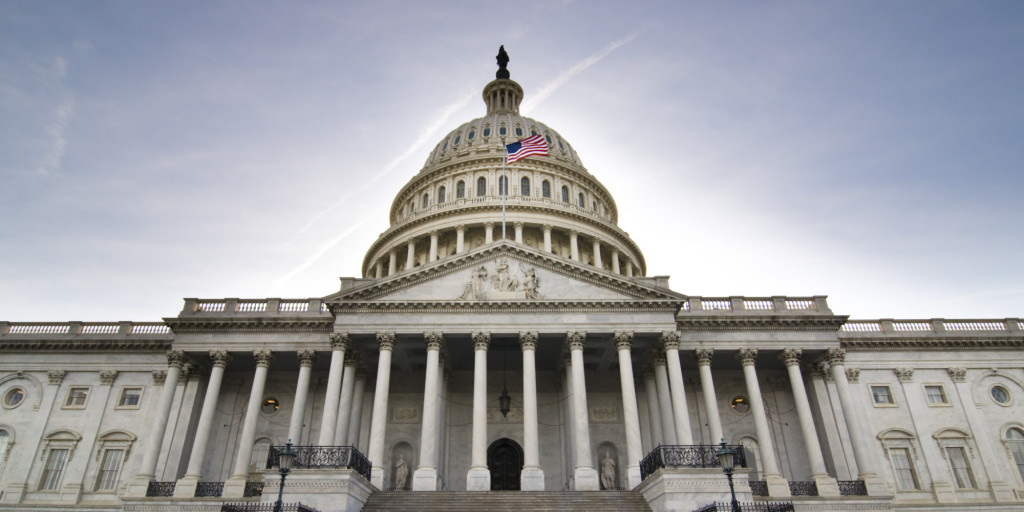
5 p.m. Wednesday marked the deadline for registering as a candidate for the Alabama U.S. Senate race. 11 Republicans and eight Democrats will now vie for their party’s nominations on the August 15 primary. If needed, a runoff will take place Sept. 26, with the general election scheduled for Dec. 12. Here’s the full of list of who’s in the race: Republicans (in alphabetical order) James Beretta: A small business owner in Pelham, Ala. Joseph F. Breault: Has qualified to run. Dr. Randy Brinson: Former head of the Alabama Christian Coalition and founder of the conservative advocacy group “Redeem the Vote.” Mo Brooks: Alabama 5th District U.S. Congressman who first took office in 2011. Dominic “Dom” Gentile: Birmingham-area businessman. Bryan Peeples: President and CEO of Peeples Consulting. Trip Pittman: State Senator from Montrose. Mary Maxwell: Ran for U.S. Congress in New Hampshire’s 2nd District in 2006. Roy Moore: Former chief justice of the Alabama Supreme Court. Karen Haiden Jackson: A Prattville attorney. Has previously run for other statewide offices as a Democrat. Luther Strange: Former Alabama Attorney General appointed to the U.S. Senate in February by former-Gov. Robert Bentley following Jeff Sessions’ confirmation a U.S. Attorney General. Current Decatur-Republican State Rep. Ed Henry previously entered the race, but in a surprise move withdrew on Wednesday. Democrats (in alphabetical order) Will Boyd: Former Greenville, Ill. City Councilman. Write-in candidate for the U.S. Senate in Illinois in 2010. Democratic nominee for Alabama’s 5th Congressional District in 2016. Vann Caldwell: Talladega County Jason Fisher: Vice President & Senior Consultant at Ruffalo Noel Levitz, a direct marketing firm specializing in nonprofit development. Michael Hansen: Activist and Executive Director of Alabama environmental advocacy group Gasp. Doug Jones: A former U.S. Attorney for the Northern District of Alabama, now in private practice. Robert Kennedy Jr.: Mobile resident. Brian McGee: Lee County Nana Tchienkou: Jefferson County
Poll says blacks less likely to have enough for retirement
Older white Americans are nearly twice as likely as African-Americans to say they’ve saved enough for retirement, a new poll found. The Associated Press-NORC Center for Public Affairs Research survey also found that African- Americans and Latinos have less financial security than whites and will rely on fewer sources of income during retirement. The retirement savings gap between white and other minority groups extends beyond pensions, 401(k)s or other retirement accounts. The survey shows older white Americans are also more likely to collect Social Security benefits, inherit money from their families or receive income from the sale of a home or other physical assets. The disparity in retirement readiness is a sign that the structural inequalities black and Latino workers face during their working years extend into retirement. For example, the unemployment rate among African-Americans is twice that of whites. On top of that, blacks earn less than whites with similar education and experience, research shows. “Having good saving habits is good but black and Latino workers are just always worse off and it makes every aspect of saving for retirement harder,” said Matthew Rutledge, an economist at the Center for Retirement Research at Boston College. About 38 percent of older white Americans said they had sufficient money for retirement compared with 20 percent for African-Americans. Four in 10 older Americans say they think they’ll outlive their retirement savings. “Black and Latino families benefit from being close,” Rutledge said, adding that family members help to care for children and the elderly. “But it doesn’t pay off when compared to whites family’s (financial) contributions.” Families not only pass down money, but also information on how to handle finances. “They have learned better savings behavior from the previous generation,” he said. “Older Americans who received financial help from family are less likely to have racked up credit card debt or student loans. They can save (for retirement) rather than paying off debt.” The poll showed whites are significantly more likely, compared to African-Americans and Latinos to say they have a retirement account. They’re also more likely than African-Americans to say they will have income from the sale of physical assets. But even when it comes to the most basic form of income during retirement, whites are more likely to say they will receive Social Security payments – 82 percent compared to 62 percent for African-Americans and 60 percent for Latinos, the survey found. The situation is so dire that some older African-Americans and Latinos have no sources of income for retirement -14 percent compared to 4 percent of whites, the survey found. Maria Villanueva, 69, is one of them. Villanueva doesn’t collect Social Security payments because she didn’t pay into the system. Villanueva immigrated illegally to California in the 70s to work as a farmworker and became a legal resident after the Immigration Reform and Control Act was signed into law. The single mother worked as a domestic worker but was paid in cash. “I didn’t know I had to pay into Social Security,” she said in Spanish. “All my life I’ve taken care of everyone except myself.” Villanueva hoped she would be able to work into older age but she can’t because of various chronic illnesses including diabetes and arthritis. She now relies on government assistance and food stamps. She provides for her 15-year-old granddaughter. “I try not to think about the future because I don’t know what’s going to happen tomorrow,” she said. “What if I go to sleep tonight and I don’t wake up tomorrow?” Retired members of minority groups tend to have lower incomes and are more likely to describe their financial situation as “somewhat poor or very poor” compared to white Americans. Black Americans were also more likely to say they sometimes fall behind on bills, the poll found. John Jackson, 66, of Fort Lauderdale, Florida, contributed to an Individual Retirement Account when he worked as a manager. Now, two years into retirement, he said he’s not sure if his savings and Social Security will be enough. Jackson, who is black, says there are many people worse off than him and that’s why he doesn’t like to complain. Worst case scenario, he said, he has a big loving family who could take care of him. “I know God will take care of me,” he said. Some white Americans also are fearful about having enough for retirement. For example, Karen Brooks, a 52-year-old university professor living in a suburb outside Seattle, said she’s concerned whether she’s saved enough. Brooks is, by most standards, better off financially than Jackson. She has a pension from her work as a school teacher. She is also contributing about 15 percent of her current income to a retirement account and she may even receive a small inheritance. But her biggest source of worry is that she didn’t save when she went back to graduate school. “I’m pretty smart and I’ve done well,” she said. “I’m saving for retirement but I don’t know if it’s going to be enough. It’s frightening even talking about it now.” The survey was conducted Feb. 14 through March 13 by The Associated Press-NORC Center for Public Affairs Research with funding from the Alfred P. Sloan Foundation. It involved interviews in English and Spanish with 1,683 people aged 50 and older nationwide who are members of NORC’s probability-based AmeriSpeak panel, which is designed to be representative of the U.S. population. It includes oversamples of 332 African Americans and 308 Hispanics. Results from the full survey have a margin of sampling error of plus or minus 3.0 percentage points. Republished with permission of the Associated Press.
Get to know Dom Gentile, Republican running for Alabama U.S. Senate seat
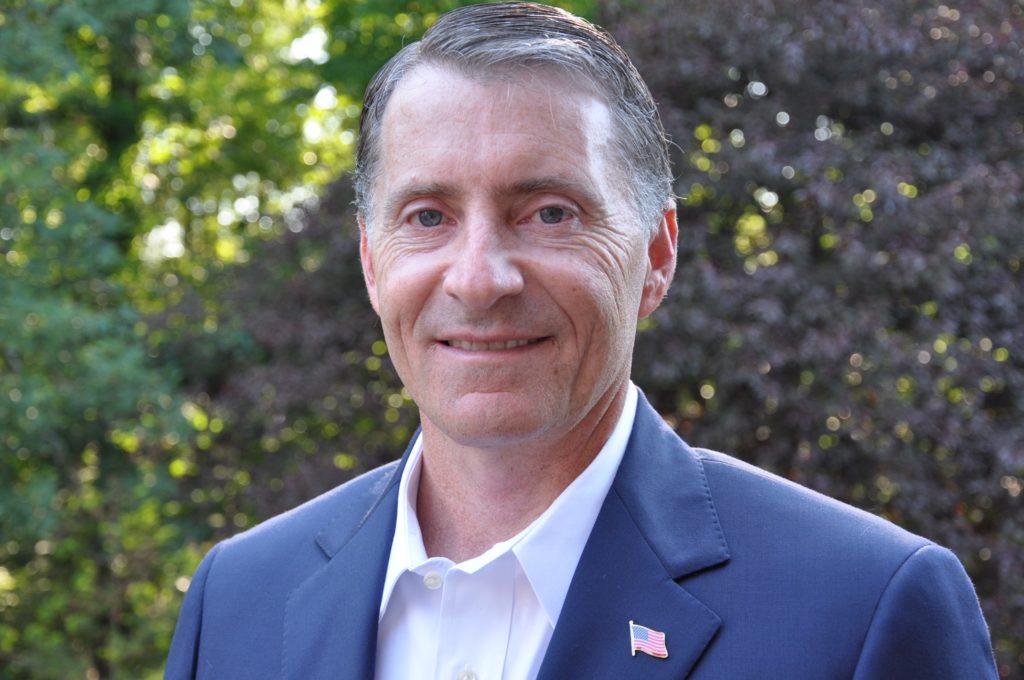
Wednesday marked the deadline for candidates to qualify to run in the Alabama special election to replace Jeff Sessions in the U.S. Senate. 11 Republicans and eight Democrats will officially move forward to their party’s August 15 primaries. With a little over three months until voters head to the ballots, AlabamaToday.com is inviting all of the candidates, including appointed-incumbent Sen. Luther Strange, to complete a questionnaire we believe offers an interesting, albeit, thumbnail sketch of who they are and why they are running. If you are a candidate and would like to complete the questionnaire, email Elizabeth@ALToday.com. Today’s candidate spotlight features Dominic “Dom” Gentile, a Birmingham businessman hoping to shake-up the status quo. Here he is in his own words: Significant other? Wife, Karen – met in college, married 29 years. Kids? We have three boys between the ages 16-23. Education background? Attended the University of Alabama and was a walk-on kicker for the football team. Studied Political Science and received my BA. Then went on to get an MBA. Professional background? I’ve worked in sales, marketing and general management for three Fortune 500 companies Duracell, Gillette and Sara Lee. Those positions provided me with the opportunity to travel the world working in over 25 countries, living in many different cities in the US, and living in Asia. This gave me a global perspective that I will take with me to the Senate. What was your first job? Territory Manager selling batteries for Duracell. In 25 words or less, why are you running for office? Our citizens need a representative, not another politician. Alabamians deserve to have a candidate who is not a bought insider. I have never run for office and owe nobody. Did you speak with anybody in your political party before deciding on running? Receive any encouragement? From whom? I did not speak with anyone from the party. Who do you count on for advice? I am a good listener so I count on a lot of people for advice. Who is your political consultant? Campaign manager? My team is comprised of professionals in Public Relations, Graphic Design, Social Media, Advertising and Promotion and Communications. None of them have political experience, and that is intentional. Who was the first person to contribute to your campaign? Me actually. Why did they donate? I wanted to self-fund my campaign to demonstrate that I am not in anyone’s back pocket. Special interests and the donation money from special interests are ruining our election process. Who, if anyone, inspires you in state government? Nobody Why do people mistrust elected officials and what are you going to do about it? People mistrust elected officials because they don’t actually represent the citizens. The people are frustrated and angry because they realize that special interests have a voice, but they don’t. That is why I’m running. I believe we need people from outside of the ‘system’ to bring sound problem solving and ethics back into office. I will never accept PAC or special interest money, and I will term-limit myself out of a job. I will serve one full 6 year term and then it is someone else’s turn. What are 3 issues that you’re running on? (Please don’t simply say “education” or “improving the schools”) My biggest three issues are: Term limits. I will push to pass a law on term limits at the federal level, and since I’m pretty sure it won’t pass (these insiders would never pass it) I will pledge to only serve one full-term in office. If you think this is a good idea, put your vote where your mouth is and never vote for a candidate who won’t sign such a pledge. Bring competition to Blue Cross Blue Shield, resulting in lower costs for all Alabamians. Flat Tax. Let’s simplify it and get rid of the bloated IRS. What is a “disruptive” issue (i.e. ride-sharing) you are interested in? We have a monopoly in this state with Blue Cross and Blue Shield, and that is not healthy. We need a more competitive landscape that will drive insurance premiums down and make insurance more affordable for everyone from the poor to middle class to the rich, and to businesses as well. Competition makes businesses better, and that results in better options and lower prices for the consumers like us. Who was the best governor in Alabama’s modern history? Next question. One of the primary responsibilities of a governor is to see that our children are educated properly, and education in Alabama is abysmal relative to other states and countries. Show me a governor who rights this ship and I will show you the best governor. Are yard signs an important part of campaigning in your district? No, I don’t think yard sign influences how someone votes, but they are a part of name recognition. As someone who has not run for political office before I will be working to get name recognition and yard signs are a necessary evil. I do pledge to ask my team and volunteers to pick them up after the campaign and recycle if possible. What’s the first thing you read each morning? ESPN.COM Where do you get your political news? I try not to read this junk. 60 Minutes or House of Cards? Neither. My favorite show is Madame Secretary. Social media presence? Twitter handle? Facebook Twitter Instagram In 140 characters, what’s a Tweet that best describes your campaign message. Unbought. Never to be bought. Representative vs politician. Hobbies? Teaching college and exercising. Favorite sport and sports team? Hockey. Nashville Predators.
Joe Lieberman, 3 others meet with Trump about FBI director job
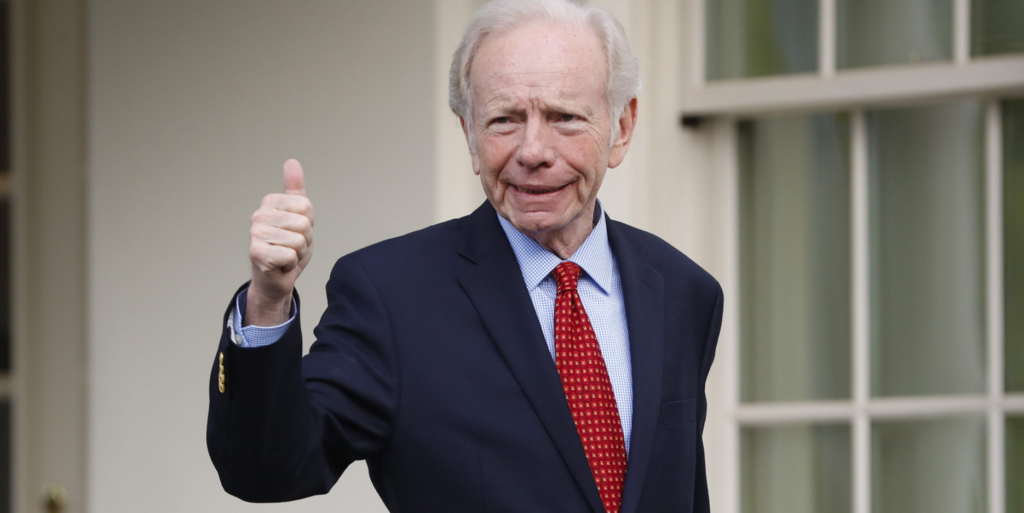
Four potential candidates to lead the FBI – including former Connecticut Sen. Joe Lieberman – have met with President Donald Trump and Attorney General Jeff Sessions. Former Oklahoma Gov. Frank Keating; Andrew McCabe, currently the bureau’s acting director; and Richard McFeely, a former top FBI official, also went to the White House for interviews on Wednesday. The meetings came more than a week after Trump fired James Comey from his post as FBI director. Trump said Monday that the search for a successor to Comey was “moving rapidly.” He also has said he could name a candidate by the end of the week, before he departs Friday afternoon on his first overseas trip as president. The Senate must confirm whoever Trump nominates. Press Secretary Sean Spicer informed reporters about the meetings as Trump flew to Washington after addressing U.S. Coast Guard Academy graduates in Connecticut. Asked as he left the White House whether he would say ‘yes’ if Trump offered him the job, Keating said, “I’m a public servant.” He added, “Let’s just say we had a good conversation.” Lieberman gave a thumbs-up to reporters camped out on the White House driveway and said “It was a good meeting.” McFeely departed without comment. Reporters did not see McCabe when he left the complex. Lieberman served in the Senate for more than two decades and was the Democratic vice presidential nominee in 2000 with then-Vice President Al Gore. Lieberman lost his 2006 Democratic primary bid but won Senate re-election as a third party candidate. Lieberman spoke at the 2008 Republican National Convention on behalf of his friend, Arizona Sen. John McCain, and did not seek re-election in 2012. He has served as co-chairman of No Labels, a centrist group that promotes bipartisanship. Keating, a Republican, was a two-term governor of Oklahoma and led the state during the deadly 1995 bombing of a federal building in Oklahoma City. A former FBI agent, Keating served in the administrations of Presidents Ronald Reagan and George H.W. Bush. McCabe became acting director following Comey’s dismissal on May 9. The veteran FBI official made headlines for congressional testimony last week that rejected the White House’s claim that Comey had lost the support of rank-and-file agents. He also disputed the administration’s characterization of an investigation into potential coordination between Russia and the Trump White House. Several other candidates have withdrawn from consideration, including Rep. Trey Gowdy of South Carolina and Sen. John Cornyn of Texas, both Republicans; Alice Fisher, the former head of the Justice Department’s criminal division; and Michael Garcia, a former U.S. attorney from Manhattan. Republished with permission of the Associated Press.
Bill to mandate insurance coverage for autism therapy heads to Kay Ivey’s desk
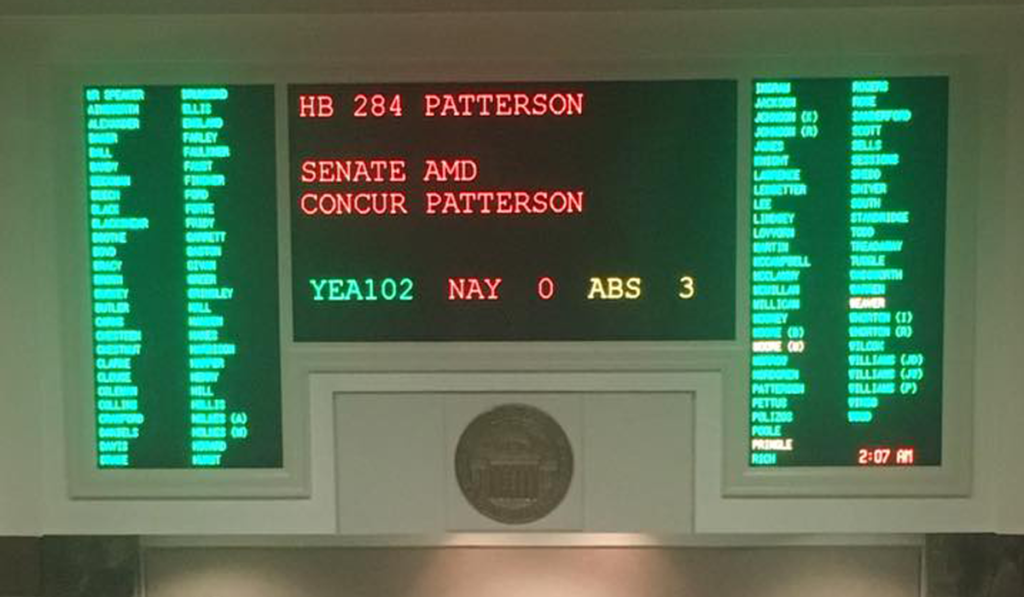
While most Alabamians were sound asleep, state lawmakers were hard at work trying to get legislation across the finish line early Thursday morning. Making it past its final hurdle, HB284, a bill mandating insurance coverage for autism therapy, was approved by Alabama House of Representatives at 2:07 a.m. when members concurred 102-0 with an amended Senate version. The final version of the bill includes amendments from its original version such as making the mandate only apply to patients up to 18 years of age, applying only to companies with at least 51 employees, and delaying the mandate altogether on public plans until Dec. 31, 2018. “I am so proud that our State has done the right thing!” the bill’s sponsor Meridianville-Republican Rep. Jim Patterson said in an early Thursday morning Facebook post. Patterson is referring to his colleagues decision to support the bill, which faced a tenuous road to final passage. Last month the House unanimously passed the bill, 100-0, but the legislation found itself in jeopardy when it reached the Senate due to concerns over costs, as it requires providers to cover an intensive therapy called Applied Behavioral Analysis (ABA) therapy. However, following an outpouring of public support, the Senate ultimately approved the measure, 33 to 1, Tuesday with a few amendments to the House bill, which is what triggered the late-night House concurrence vote. “I voted yes on behalf of my district. I hear you loud and clear,” Huntsville-Republican Paul Sanford posted on Facebook after the vote. The bill now moves to the desk of Gov. Kay Ivey. According Patterson, Ivey will sign the bill during a 10 a.m. Friday ceremony.


